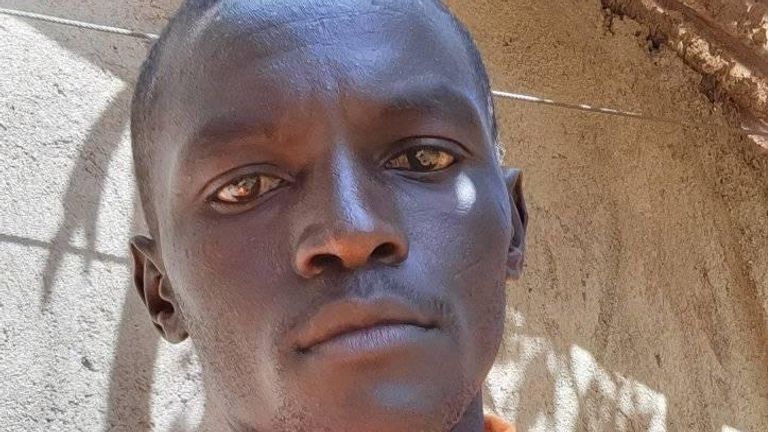
Dickson Ndiema Marangach doused Cheptegei in petrol and set her on fire, leading to her death in Kenya on Sunday.
The man who attacked Ugandan runner Rebecca Cheptegei has died from injuries sustained when he poured petrol over the Olympic athlete, the Kenyan hospital treating him said.
Police said that Dickson Ndiema Marangach assaulted Cheptegei in her home in western Kenya on September 1. The mother of two sustained 80 percent burns and died last week.
In the course of the attack, Marangach also incurred 30 percent burns and was being treated in the intensive care unit at the Moi Teaching and Referral Hospital (MTRH) in Kenya’s Rift Valley city of Eldoret.
Marangach died at 7:50pm local time (16:50 GMT) on Monday, Daniel Lang’at, a spokesperson at the hospital said.
“He died from his injuries, the burns he sustained,” Lang’at told the Reuters news agency.
Police in Kenya said Marangach snuck into her home in Endebess, near the border with Uganda, while she was at church with her children aged nine and 11.
Her father, Joseph Cheptegei, told reporters the dispute with Marangach had been over the property where she lived with her sister and daughters. He told Kenyan media last week that Marangach had bought five litres (1.3 gallons) of petrol and then hid out in a chicken coop before the attack.
“He poured the petrol and lit her on fire. When she called her sister to help, he threatened her with a machete and she ran away.”
The police said the couple had “constantly had family wrangles”.
The United Nations condemned her “violent murder”, with Stephane Dujarric, spokesman for UN chief Antonio Guterres, saying: “Gender-based violence is one of the most prevalent human rights violations in the world, and should be treated as such.”
Tributes pour in as Cheptegei honoured in Paris
Cheptegei, who finished 44th in Paris, is the third elite sportswoman to be killed in Kenya since October 2021. Her death has put the spotlight on domestic violence in the East African country, particularly within its running community.
She is due to be buried on September 14 near her family home in eastern Uganda, according to the country’s Olympic Committee.
On Sunday, the Paralympic Games in Paris paid tribute to her when a picture of Cheptegei appeared on a giant screen after the marathon events on the last day of the games. The tribute was met with applause from the spectators at the Esplanade des Invalides.
The city of Paris said it would honour Cheptegei by naming a sports venue after her.
Tributes have poured in for the runner, who was Uganda’s women’s marathon record holder and also served in the Uganda Peoples’ Defence Forces, holding the rank of sergeant.
“Our sport has lost a talented athlete in the most tragic and unthinkable circumstances,” World Athletics President Sebastian Coe said.
“Rebecca was an incredibly versatile runner who still had lots left to give on the roads, mountains and cross-country trails.”
Coe said he was in discussions with members of World Athletics’ governing council “to assess how our safeguarding policies might be enhanced to include abuse outside of the sport, and bringing together stakeholders from all areas of athletics to combine forces to protect our female athletes to the best of our abilities from abuse of all kinds”.
Cheptegei’s death highlights gender-based violence in Kenya
Rights groups say female athletes in Kenya, where many international runners train in the high-altitude highlands, are at a high risk of exploitation and violence at the hands of men drawn to their prize money, which far exceeds local incomes.
“Justice really would have been for him to sit in jail and think about what he had done. This is not positive news whatsoever,” said Viola Cheptoo, co-founder of Tirop’s Angels, a support group for survivors of domestic violence in Kenya’s athletic community.
“The shock of Rebecca’s death is still fresh,” Cheptoo told Reuters.
Cheptoo co-founded Tirop’s Angels in memory of Agnes Tirop, a rising figure in Kenya’s highly competitive athletics scene, who was found dead in her home in the town of Iten in October 2021 with multiple stab wounds to the neck.
Ibrahim Rotich, Tirop’s husband, was charged with her murder and has pleaded not guilty. The case is continuing.
At least two other athletes have died at the hands of their partners since 2021.
Throughout Kenya, 41 percent of women who have been married have experienced physical violence, compared with 20 per cent of those who have not been married.
At least 500 women and girls have been murdered in Kenya since 2016, according to the UN.
Figures from UN Women Africa show that globally, there were 89,000 reports of women and girls murdered in 2022, the highest number recorded in 20 years. More than half of the women and girls were killed by intimate partners or other family members.
Kenya’s sports minister Kipchumba Murkomen said the Olympian’s death was a “stark reminder” that more must be done to combat gender-based violence.






